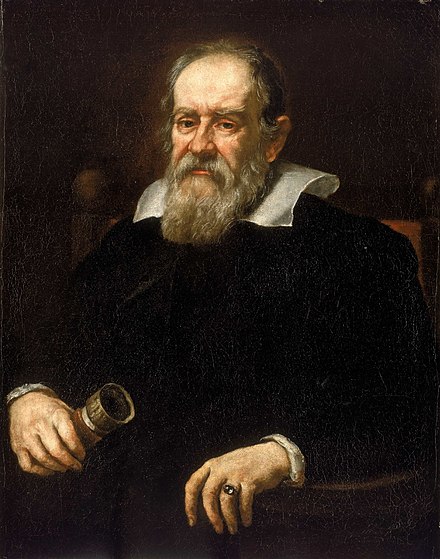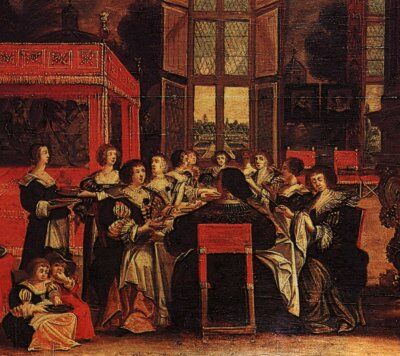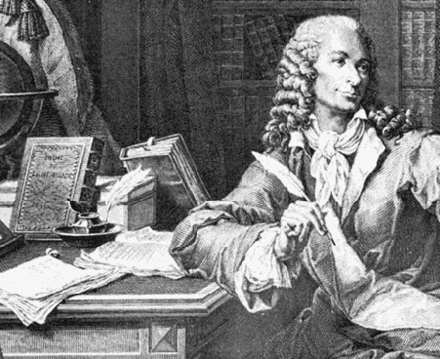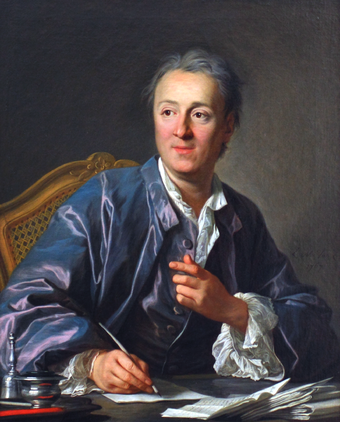4.7 Causation in the Age of the Scientific Revolution
5 min read•april 16, 2023
Eshal Warsi
Eshal Warsi
AP European History 🇪🇺
335 resourcesSee Units
Explain how and why the Scientific Revolution and Enlightenment challenged the existing European order and understanding of the world
Rediscovery of Classic Works
During the Renaissance, which took place from the 14th to the 17th century, there was a renewed interest in the classical works of ancient Greece and Rome. This led to the rediscovery and translation of many texts, which had a profound impact on the way Europeans thought about the world. Additionally, during this time, there was a renewed interest in the observation of the natural world, which led to the development of modern science. These changes in thought and perspective had a significant impact on the way Europeans viewed their world and their place in it.
During the Scientific Revolution of the 16th and 17th centuries, new ideas in science began to emerge based on observation, experimentation, and mathematics. These new ideas challenged the classical views of the cosmos, nature, and the human body that had been held for centuries.
For example, the work of scientists such as Galileo, Kepler, and Newton, who used observation and experimentation to understand the natural world, challenged the traditional Aristotelian view of the cosmos which had been accepted for centuries. Similarly, the work of anatomists and physicians, who used dissection and observation to understand the human body, challenged traditional ideas about the nature of the body and its functions.

Image Courtesy of Wikipedia
Despite these new ideas and discoveries, many traditional views of the universe and knowledge continued to be held by many people. It was a gradual process and it took time for the scientific revolution to fully take hold and for these new ideas to be widely accepted.
Scientific Revolution and Enlightenment
The Enlightenment thinkers, who were heavily influenced by the ideas of the Scientific Revolution, emphasized the importance of empiricism, skepticism, human reason, and rationalism in understanding the world.
With respect to social order, many Enlightenment thinkers believed that society should be based on reason and evidence, rather than tradition and superstition. They advocated for the idea of a "social contract" in which individuals would give up some of their rights to a government in exchange for protection and security. They believed that government should be limited, and that power should be divided among different branches and levels, to prevent any one group or person from having too much power.
Spread of the Enlightenment
The growth of cities and the emergence of a new urban middle class created a demand for new forms of entertainment and education, such as salons, coffeehouses, and lecture halls. These venues provided a space for people to gather and discuss new ideas, and they were often frequented by Enlightenment thinkers and their followers.
Additionally, the invention of the printing press in the 15th century and the widespread availability of books and pamphlets in the 18th century, allowed for the dissemination of Enlightenment ideas on a large scale. The increased production and circulation of books, newspapers, and magazines, allowed for the rapid spread of ideas and the creation of a public sphere in which people could engage in a national and international conversation.

Image Courtesy of Wikipedia
New Economic and Political Ideas
During the 18th century, new political and economic theories emerged that challenged the prevailing systems of absolutism and mercantilism. Absolutism was a system of government in which the monarch had complete and unchecked power. Mercantilism was an economic theory that held that a country's wealth and power were determined by its supply of gold and silver and that a favorable balance of trade was necessary for a country to be prosperous.
Enlightenment thinkers such as Montesquieu, Voltaire, and Rousseau, developed new theories of government and society that emphasized the importance of individual liberty, democracy, and the separation of powers. They argued that government should be limited and that power should be divided among different branches and levels, to prevent any one group or person from having too much power. They believed that the people had the right to participate in government and that a system of checks and balances was necessary to prevent tyranny.

Image Courtesy of Wikipedia
In the realm of economics, Adam Smith and other economists proposed new theories that advocated for free market principles, where government should not intervene in the economy and the market should regulate itself. They argued that the economic growth and prosperity of a nation depend on the freedom of individuals and businesses to trade and produce goods and services.
Religion
The Enlightenment thinkers also challenged the role of faith and religion in society. They believed that religious beliefs and practices should be subject to rational scrutiny and that the traditional dogmas and doctrines of the church should be questioned. This led to the development of a new approach to religion known as "natural religion," which emphasized the importance of reason and nature in understanding the divine.
This emphasis on reason and evidence led many Enlightenment thinkers to advocate for religious toleration. They believed that individuals should have the freedom to practice their own religion and that the state should not impose a particular religion on its citizens. They also believed that religious diversity was a natural and healthy aspect of society and that religious intolerance was a major source of conflict and suffering.
Everyday Life
Some of the key factors that shaped the experiences of everyday life during this time include:
- Demographic changes: The 18th century saw a significant increase in population in many parts of Europe. This led to overcrowding in cities, a growing labor market, and a shift in the demographic makeup of society.
- Environmental changes: The 18th century saw a number of environmental changes, including the draining of wetlands and the clearing of forests, which had a significant impact on agriculture and the local environment.
- Medical changes: The 18th century saw a number of advances in medicine, including the development of new surgical techniques and the use of smallpox vaccination. These changes led to improvements in public health and a decrease in mortality rates.
- Technological changes: The 18th century saw a number of technological innovations, including the development of new machines and tools, which led to improvements in agriculture and manufacturing. The steam engine and the spinning jenny were some of the major technological changes that revolutionized industry.

Image Courtesy of Wikipedia
Family Life
The growth of cities and the emergence of a new urban middle class led to a shift in the demographic makeup of society. Families became smaller and more nuclear, with fewer children and an emphasis on the nuclear family unit. This was also reflected in the architectural design of homes, with a shift from large multi-generational households to smaller, more private spaces for individual families.
Furthermore, the growth of consumer culture and the rise of new forms of advertising and marketing, led to a change in the way people consumed goods and services. This led to the emergence of new forms of consumerism and the development of new forms of domesticity and private life.
Browse Study Guides By Unit
🎨Unit 1 – Renaissance & Exploration
⛪️Unit 2 – Reformation
👑Unit 3 – Absolutism & Constitutionalism
🤔Unit 4 – Scientific, Philosophical, & Political Developments
🥖Unit 5 – Conflict, Crisis, & Reaction in the Late 18th Century
🚂Unit 6 – Industrialization & Its Effects
✊Unit 7 – 19th Century Perspectives & Political Developments
💣Unit 8 – 20th Century Global Conflicts
🥶Unit 9 – Cold War & Contemporary Europe
🚀Thematic Guides
📝Long Essay Questions (LEQ)
📆Big Reviews: Finals & Exam Prep

© 2023 Fiveable Inc. All rights reserved.